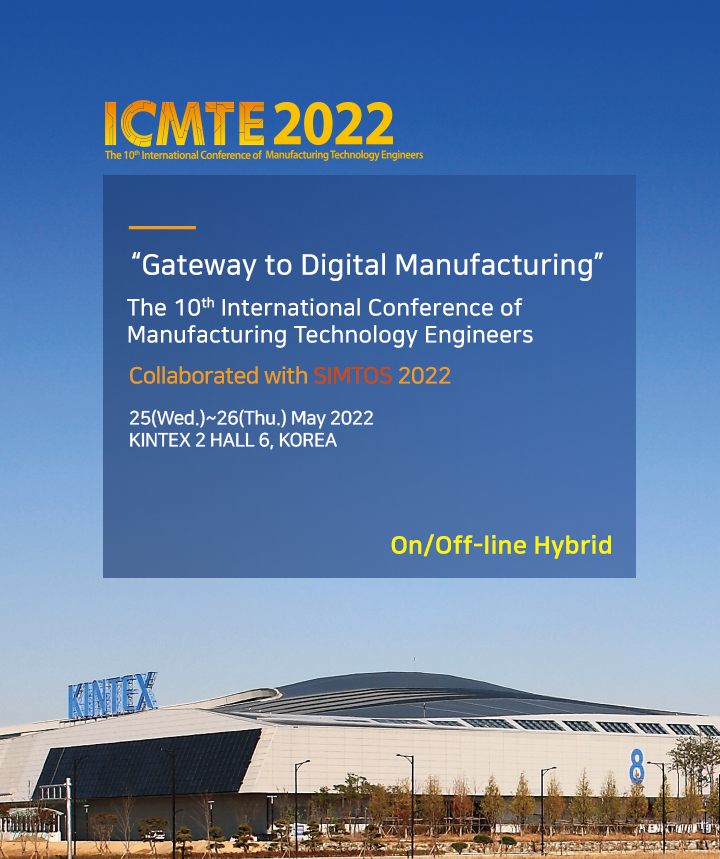 |
LIVE
Invited Speech 1, Room A, 25-May (Wed), 13:30-14:00 Toward Next Generation of Machine Tools: Perspectives on Smart Machine Tools and Artificial Intelligence Prof. Simon Park
Biography
Dr. Park is a professor at the Schulich School of Engineering, Dept. of Mechanical and Manufacturing Engineering, University of Calgary, Canada. He was an AITF iCORE Chair in sensing and monitoring. He is a professional engineer in Alberta and is an associate member of CIRP (Int. Academy of Production Engineers) from Canada. Dr. Park received bachelor and master's degrees from the University of Toronto, Canada. He then continued his PhD at the University of British Columbia, Canada. He has worked in several companies including IBM manufacturing where he was a procurement engineer for printed circuit boards and Mass Prototyping Inc. dealing with rapid prototyping systems. His research interests include nanocomposites, printed electronics, sensors, IoTs, batteries and advanced manufacturing. He has also founded three start-up companies in sensing, batteries, advanced manufacturing and partial upgrading of bitumen. He is also serving as associate editors of several journals. Currently, he is directly supervising over 30 students and scholars at Multifunctional Engineering, Dynamics and Automation Lab (MEDAL, www.ucalgary.ca/medal).
Abstract
In the machine tool industry, there is growing interest in the implementation of machines that are capable of learning and adapting to their environment to optimize manufacturing processes. With the advent of the Internet of Things (IoTs), Digital Manufacturing and Industry 4.0, the development of next generation machine tools will be far-reaching in the enhancement of manufacturing processes and economic growth. To achieve, the digital transformation of the physical realm into cyber domain is critically important. In the physical domain, the pervasive sensing of machine tools through wireless communication is needed. The obtained sensor data can be used for automation of processes, compensating errors, saving energy, and preventing failures using both digital twin and artificial intelligence (AI). Digital twin concept can lay out the realization of flexible and collaborative manufacturing environment. Moreover, various AI techniques have been proposed and applied; however, many challenges still exist that inhibit the use of AI for machining tasks. We discuss the challenges and suggest future directions. |
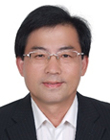 |
LIVE
Invited Speech 2, Room A, 25-May (Wed), 14:00-14:30 Overview and Case Studies of Smart Manufacturing in the Metal Industries of Taiwan Dr. Chorng-Tyan Lin
Biography
Dr. Chorng-Tyan Lin has earned his Ph.D. degree in Electrical Engineering from the Kaohsiung University of Applied Science and Technology, and his expertise includes: automatic control, machine vision, intelligent manufacturing, precision manufacturing. He has joined the Metal Industries R&D Centre, Taiwan, since 1987, and he is now the Director of Micro/Meso Mechanical Manufacturing R&D Department. Dr. Lin owns 31 patents, and he has won numerous domestic and international awards. He and his team won the "Outstanding Engineer Award" of the Chinese Society of Engineers in 2011, the Silver Medal Award of the National Invention and Creation Award in 2011, the Silver Medal Award of the Taipei International Invention and Technology Fair, the Doctoral Thesis Award of the Automatic Control Society in 2018, and the Edison Awards in 2021. Dr. Lin has made lots of efforts to contribute his expertise to serve the industries of Taiwan. In 1999, he and his team assisted a local manufacturer to develop the first plasma welding machine in Taiwan. He also led the team to assist the industry to successfully develop the IC packaging wafer bump automatic exposure machine, and successfully applied it to the industry. He also completed the development of the first, second and third generation of micro IC vision automatic inspection equipment in 2004~2005. He led his team to assist the industry to successfully develop 4" LED full automatic exposure machine, and smoothly applied in the industry in 2011.From 2010 to 2015, he and his team assisted local equipment manufacturers to develop more than 120 sets of precision automatic laminating equipment for mobile touch panels, which has attracted a lot of attention. After a five-year of research and improvement, he and his team successfully developed the ultra-high precision "air-floating stage" for semiconductor related industry in 2019. Since 2016, Dr. Lin and his team have been engaged in research projects granted by the Ministry of Economic Affairs of Taiwan. He is leading his team to contribute to the research and development of smart manufacturing related technologies in the fastener industry, and won the Edison Awards in 2021.
Abstract
The metal industry in Taiwan has been developed for decades, and the Metal Industry Research and Development Centre (MIRDC) in Taiwan has been established for nearly 60 years as well. In the early days, it focused on the research and development of metal materials and related secondary processing technologies. In recent years, in line with the government's policy of promoting Industry 4.0, we have concentrated on the research and development of key technologies for smart manufacturing, with the aim of helping the metal industries to implement smart manufacturing and to enhance their global competitiveness. My colleagues and I will take the opportunity to share with you the information about the important history of developing smart manufacturing in Taiwan, and share two successful case studies. The first case is a case of implementing the smart manufacturing technology into an advanced servo stamping process. A demonstration and trial production line was set up successfully in 2019. This line includes a 400-ton servo press, 6-axis robotic arms, 3D scanning device, feeder, etc. At the same time, we use this line to develop cloud production information system, smart virtual trial run, online die monitoring. We have used these technologies to serve more than 10 stamping part manufacturers. The second case is: the key technology development and industrial service case of smart manufacturing in the fastener industry. In this case, we have invested about 7 years and a total of 40 masters and doctors are involved in this project. In the third year of this project, we have constructed a demonstration field with the multi-function for research, trial production line and demonstration. The outputs and impacts are quite good. At present, we have served more than 20 fastener manufacturers, and there are more and more local fastener manufacturers coming to inquire for assistance. |
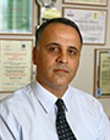 |
LIVE
Invited Speech 3, Room B, 25-May (Wed), 13:30-14:00 Coated Bio-based Polymers Prof. Dumitru Nedelcu
Biography
Dumitru Nedelcu is a Professor and Ph.D supervisor at the "Gheorghe Asachi" Technical University of Iasi (TUIASI), Romania, Manager of Fine Mechanics and Nanotechnology Laboratory, President of ModTech Professional Association with 13 branches abroad, ModTech International Conference and Editor-in-Chief of the International Journal of Modern Manufacturing Technologies, Advanced Engineering Forum, International Journal of Manufacturing Economics and Management and International Journal of Hybrid Information Technology. His research topics: processing and characterization of polymeric and biodegradable materials; management of industrial manufacturing projects. He was a Visiting Professor at TAT, Institute of Engineering, Tokyo, Guest Professor at Joining and Welding Research Institute, Osaka University, Japan and Grenoble Institute of Technology, France. He had Erasmus teaching internships in prestigious universities from Poland, Italy and Mexico. Since with October 2016 he was accepted as Visiting Professor at the Silesian University of Technology, Mechanical Engineering Faculty, Gliwice, Poland. As far as research is concerned, he coordinated 15 national and international projects as project manager/responsible and member in other 16 research projects. He was invited to give 26 lectures, as plenary speaker/keynote speaker/invited speaker at different international conferences and over the years he got 28 national / international awards. Throughout his career, he received a TEMPUS and Romanian Government scholarship at Escuela Tecnica Superior de Ingenieros Industriales, Universidad Politecnica de Madrid. He has published more than 188 scientific papers on ISI and BDI journals and international conferences proceedings. He serves on various journals and conferences review committees. The detailed activity can be tracked on the personal webpage, www.dumitrunedelcu.ro.
Abstract
The demand for high quality composite materials is growing and is clearly moving towards to a responsible alternative that will reduce the harmful effects of plastic materials. The present study aims to investigate the structure of the Arboblend V2 Nature bio-based polymer reinforced with silver nanoparticles (AgNP's) and also of samples, coated with thin ceramic layers. The micro powders used for the ceramic coatings were Amdry 6420 (Cr2O3), Metco 143 (ZrO2 18TiO2 10Y2O3) and Metco 136F (Cr2O3-xSiO2)-yTiO2). The main goal of the silver nanoparticles reinforcement was to demonstrate the antibacterial effect of the uniform distributed nanoparticles (in the sample mass), those facilitating the use of this one in the sanitary field. Regarding the coatings with ceramic layers, it was desired to obtain fine and uniform layers in order to increase the tribological and anticorrosive characteristics so helpful in operation in the automotive industry field but, not only. Take into account the good results obtained can be concluded that the used biodegradable material has superior characteristics that meet the technological demands, being able to gradual substitute the plastic from important activity areas. |
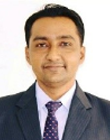 |
LIVE
Invited Speech 4, Room B, 25-May (Wed), 14:00-14:30 Applications of Artificial Intelligence in Manufacturing Prof. Sachin Salunkhe
Biography
Dr. Sachin Salunkhe is an associate professor in the department of mechanical engineering, Vel Tech Rangarajan Dr.Sagunthala R&D Institute of Science and Technology, Chennai, India. His main research interests include press tool design, metal additive manufacturing, Artificial Intelligence in manufacturing applications, die design expert systems, sheet metal forming, wear analysis, fatigue analysis and high strain rate. Dr. Sachin has published more than 85 research papers in reputed journals, conferences and 11 books/chapters. Further, Dr. Sachin is the editor of various journals such as Advances in Metal Additive Manufacturing, Institution of Mechanical Engineers, Part L: Journal of Materials: Design and Applications (IF-2.014), International Journal for Simulation and Multidisciplinary Design Optimization and MDPI Lubricants. He has completed more than $1.2 million in research projects from various national and international research funding agencies. Dr Sachin is a visiting professor at the School of Engineering, Mathematics and Technology, Navajo Technical University, USA.
Abstract
Computer-connected devices that mimic human intelligence are referred to as artificial intelligence (AI). Additive manufacturing (AM) applications can currently be found in the food, chemical, aerospace, automotive, and healthcare industries, among other sectors. Perhaps the most significant advantage of 3D printing is that the customer's specifications can create even complex objects. In the current state of affairs, it is better suited for small-scale production. 3D model preparation, component prototyping, and component production are the stages of additive manufacturing. In the prefabrication stage, the goal is to determine whether or not it is technically possible and feasible to print a given 3D model. It is also known as smart manufacturing when 3D printing with artificial intelligence is used. Productivity would increase as a result of smart manufacturing. It is predicted that the global 3D printing market will grow to $6 billion by 2022, with the biggest growth opportunities for businesses in the home improvement and life sciences industries. Although the additive manufacturing process has made significant strides in recent years, there are still several obstacles to overcome before being widely adopted by the industry. Taking additive manufacturing as an example, there are numerous and complex variables that must be monitored and controlled throughout the process to achieve a reasonable level of print accuracy. Experimenting with different lattice positions or designing appropriate support structures is not a sustainable or time-efficient method of finding the best configuration. |
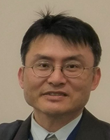 |
LIVE
Invited Speech 5, Room A, 25-May (Wed), 16:00-16:30 Challenge of System Development for Condition Monitoring in Intelligent Manufacturing Prof. Ming-Chyuan Lu
Biography
Dr. Ming-Chyuan Lu is currently an associate professor at Department of Mechanical Engineering, National Chung Hsing University, Taiwan. His current research interests focus on the condition monitoring in manufacturing, metal additive manufacturing and micro machining. Prior to pursuing his Ph.D. degree in the University of Michigan at Ann Arbor, Dr. Lu was as an associate engineer of Opto-Electronics and System lab. of ITRI in Hsinchu, Taiwan, from 1993-1996 for the inkjet printer system design. During his Ph.D. study at Ann Arbor, Dr. Lu joined ERC/RMS center at University of Michigan for the research focusing on the multi-sensor applications for tool condition monitoring. Prior to joining NCHU as an assistant professor at 2006, Dr. Lu joined Nano-Architect Research Corporation in Hsinchu, Taiwan from 2001 to 2005 as a project manager/manager for the plasma equipment development, and was as a researcher of Mechanical and System Lab. of ITRI in Taichung, Taiwan for the machine tool system development.
Abstract
Condition monitoring is one of the key tasks to enhance the quality of product and improve the efficiency of manufacturing process. However, some key issues limited the capability of directly transferring the system developed in the laboratory to the mass production line in industry. In this presentation, the variation of signal features caused by the change of processing parameters, the clamping force, the tool geometry, location of sensor installation, and sensor types is discussed first for metal cutting and laser welding, following by the discussion of the important role of sensor selection and feature extraction for the development of condition monitoring to improve the system robustness. The analyzed signals include vibration, audible sound, and Acoustic Emissions (AE) collected simultaneously from various sensor installation locations will be presented. To determine the best features for developing the monitoring system, a cost function is introduced in this presentation, and the effect of the feature selection on the classification rate is discussed as well. Some evaluation tests are going to be presented to demonstrate that the classification rate of the developed tool wear monitoring system can be improved with the proper selection of signal features from various sensors along with the suitable classifier. |
 |
LIVE
Invited Speech 6, Room A, 25-May (Wed), 16:30-17:00 Practice of Smart Manufacturing Implementation on Traditional Manufacturing Industry Prof. Shih-Ming Wang
Biography
Dr. Shih-Ming Wang received his Ph.D. degree from Northwestern University in 1996. In 1997, he joined Mechanical Engineering department of Chung Yuan Christian University since Aug. of 1997, and devoted himself in teaching and research for 21 years at CYCU. His research has been long-term focusing in area of precision machine design & analysis, CNC machining, cutting Dynamics & application, error measurement & compensation, on-line intelligent monitoring & control, and smart manufacturing/Industry 4.0 applications. So far he has published 143 papers, received 50 invention patents, executed 202 projects, and had 24 tech. transfer cases. Because of his research achievements in smart manufacturing, he was invited to work as a Chief Technology Officer for Walsin Group in Aug., 2017. After 4 years, Prof. Wang retired from Walsin Group and joined Mechanical Engineering department of National Chung Hsin University in 2020 to continue his academic career. In addition to being a professor, he currently also serves the ME Dept. as a deputy chair, and as a director of the Smart Automation & Precision Machine Research Center for the engineering college.
Abstract
Smart manufacturing has become a feasible and high-potential objective for traditional manufacturing companies to enhance their capabilities and strength for business competition. It will not only benefit their production efficiency, but also yield rate, logistic/supply-chain management, and business development. However, due to lack of well-established automatic facility, auto-sensing system, experiences on use of big data analysis, and machine learning, the first difficulty encountered to companies for developing smart manufacturing is usually "where to start" and"how to do". In this speech, the international trend, the needs of companies, smart manufacturing apps, and implementation examples of smart manufacturing in traditional manufacturing industry will be addressed to give audiences an overall introduction. |
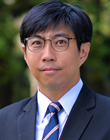 |
LIVE
Invited Speech 7, Room B, 25-May (Wed), 16:00-16:30 A Development of Sustainable Digital 3D Laser Micro Additive Manufacturing Prof. Ming-Tsang Lee
Biography
Dr. Ming-Tsang Lee received his Ph.D. degree from the Department of Mechanical Engineering at University of California, Berkeley, in 2008. After graduated, he had been a Postdoctoral Researcher in the University of California at Berkeley and as a Visiting Scientist in Lawrence Berkeley National Lab. Dr. Lee is specialized in energy and mass transport phenomena in micro- and nanoscales, solarthermal hydrogen productions, and laser assisted micro- and nanoscale fabrications. Since August 2018 Dr. Lee joined the Department of Power Mechanical Engineering in National Tsing Hua University as an associate professor. His current research interests include: Transport phenomena in micro/nanoscale complex opto-heat-mass multiphase flow systems, Laser assisted micro/nanoscale hybrid and green manufacturing and material processing, and Multiphysics analysis encompassing thermal-fluid-solid mechanics for renewable energy systems, advanced manufacturing processes as well as ultra-precision machinery systems. Dr. Lee is currently a committee member of the Committee on Nanoscale Heat Transport (K-9) in ASME (American Society of Mechanical Engineers) Heat Transfer Division. He is a recipient of Distinguished Young Scholar of Society of Theoretical and Applied Mechanics in 2018, and Outstanding Young Scholar Research Grant by MOST (Ministry of Science and Technology) of Taiwan in 2017.
Abstract
Laser direct micro-fabrication enables high design flexibility, wide range of material selectivity, low thermal impact 3D and eco-friendly precision machining, which makes it a potential game changing technology for next generation 3D electronics. A development of novel microfabrication technologies based on laser-induced photo-thermal-chemical reactions under atmospheric environment will be presented in this talk. Specifically, a novel approach to the rapid and green fabrication of highly conductive patterns on flexible polymer substrate is introduced. Ag and Cu based microstructures are simultaneously synthesized and patterned in a predetermined fashion using an economic continuous wave laser digital manufacturing system. The conductive patterns show great electrical conductivity and mechanical robustness. A comprehensive analysis on the physics of the microscale transport phenomena have also been carried out to investigate the coupled photo-thermal-mass transfer and the effects on the synthesis and deposition of the micro/nanostructures. In particular, a physical modeling technique on the surface tension driven flow at the interfaces of the multiphase and multiple-materials is developed and validated. In addition to assist understandings on the mechanisms and key factors that affect the surface morphology of the fabricated microstructures, this type of physical model can also work along with experimental measurem |
 |
LIVE
Invited Speech 8, Room B, 25-May (Wed), 16:30-17:00 Manufacturing Process Innovation through Digital Transformation based on Additive Manufacturing and its Applications Dr. Kuk-Hyun Han
Biography
Dr. Han is the head of R&D Center and the president of Samyoung, and is focusing on innovating manufacturing process technology by combining 3D printing. In particular, he has developed a hybrid process solution incorporating sand 3D printing technology into the metal casting process in order to advance root technology, and is actively applying it to mass production of key engine parts of Samyoung. He also succeeded in launching 3D printers optimized for manufacturing industry by developing binder jetting sand 3D printers and binder systems. Recently, Samyoung has been selected as one of the 100 Hidden Champions in Materials��Components��Equipment by the Ministry of SMEs, Korea. Dr. Han was a principal engineer at Samsung Electronics from 2003 to 2013, and a director at Samsung UX Center America & Think Tank Team from 2010 to 2013. Dr. Han has served as a director of the National Research Council of Science and Technology for the past 3 years and serves as a director of the Korea Foundry Society. Dr. Han was the recipient of the Minister Award from the Ministry of Trade, Industry and Energy, and the Minister Award from the Ministry of Science and ICT, in recognition of his contribution to the 3D printing industry, in 2019 and 2021, respectively. His team also won the Prime Minister Award for being the number one organization in the National Root Technology Competition and the Minister Award at the 3D Printing Innovation Challenge Competition from the Ministry of Science and ICT in 2020. Dr. Han received his B.S., M.S., and Ph.D. degrees in electrical engineering and computer science from KAIST, Daejeon, Korea, in 1997, 1999, and 2003, respectively. He was a visiting scientist at MIT Media Lab from 2006 to 2007.
Abstract
Recently, the speed of digital transformation in the manufacturing industry is becoming very fast. Process innovation through smart factory strategies is urgently needed in the flow of digital transformation, not just automation. In addition, as the needs of customers have diversified and the industrial structure has become more complex, the types of products have diversified, and the production quantity per item has been rapidly decreasing. In accordance with these environmental changes in the manufacturing industry, interest in additive manufacturing (3D printing) technology suitable for shortening the development period and producing small/large quantities of multiple varieties is rapidly increasing at the same time. In this lecture, the pain-point and solution of the manufacturing industry, and the digital transformation and smart factory strategies of manufacturing process are described. Examples of manufacturing process innovation through convergence of sand 3D printing technology are introduced. It outlines how sand 3D printing technology is applied to mass-production processes, how much material quality can be improved compared to existing pattern methods, and how much productivity can be maximized through the technology. Along with examples of innovation application in each field, it also suggests what 3D printing technology means from the perspective of smart factories and how to view and utilize the technology. |
 |
LIVE
Invited Speech 9, Room B, 26-May (Thu), 14:00-14:30 Hybrid Tertiary Bio-based Composites for High Performance Applications Prof. Chung-Hae PARK
Biography
Prof. Chung-Hae PARK has been working on different fields of composite materials, such as manufacturing processes, materials characterization, numerical modeling and simulation, and design and optimization. In particular, he is in close collaboration through a number of projects with many different industries covering a wide span of sectors such as petrochemical, automotive, railway and aeronautics, etc. He has served as a member of scientific evaluation board for ONERA (the French aerospace lab) and a member of evaluation panel for HECERS (Haut conseil de l'evaluation de la recherche et de l'enseignement superieur) in France. Prof. Chung-Hae PARK received BSc and MSc in mechanical engineering at Seoul National University, in 1996 and 1998, respectively. He obtained dual PhD degrees from Seoul National University and Ecole Nationale Superieure des Mines de Saint-Etienne (France) in 2003. Subsequently, he joined as a senior research engineer, LG Chem where he has worked until 2005. From 2005 to 2013, he has been a contractual professor, an assistant professor and an associate professor, at University of Le Havre, Normandy (France). In particular, he obtained the diploma of Habilitation (Habilitation a Diriger des Recherches) in 2011. In 2013, he moved to Ecole Nationale Superieure des Mines de Douai (currently called IMT Nord Europe) and has been working as a full professor so far.
Abstract
Nowadays, bioplastics and biocomposites have been attracting great attention as promising alternatives to oil-based materials in order to reduce carbon footprint. Nevertheless, their low mechanical performance and tricky manufacturing are major obstacles to their widespread use for industrial applications. For example, natural fiber reinforced biopolymers which are investigated to replace glass fiber reinforced polymers, are suffering from their low strength and poor ductility. In the SEABIOCOMP project (http://www.seabiocomp.eu/), to further enhance the mechanical performance of conventional bio-based composites such as flax fiber reinforced PLA (Polylactide), PLA fibers where polymer molecules are aligned in the fiber direction are added as a secondary reinforcement. Bicomponent PLA filaments composed of PLA with high melting point as core material and coPLA with low melting point as sheath material are developed. These bicomponent PLA filaments are mingled with flax fibers by carded needle punching method to obtain non-woven mats. These non-woven mats can be compression molded to obtain composite parts. This kind of tertiary composites with two types of reinforcement exhibit excellent mechanical properties, originating from a hybrid effect of stiff and strong flax fibers, and ductile and tough PLA fibers. Owing to the low density of PLA, flax/PLA/coPLA composites have greater specific strength and stiffness than those of SMC (Sheet Molding Compound) which is the most common composite materials in the automotive sector. Hence, this novel 100% bio-based composite material has great potentialities to reduce the structural weight and the environmental footprint. Moreover, the manufacturing conditions such as molding temperature and pressure, are the same as the compression molding of SMC. Therefore, the conventional molding equipment and molds can be used for the manufacturing without modification. |


